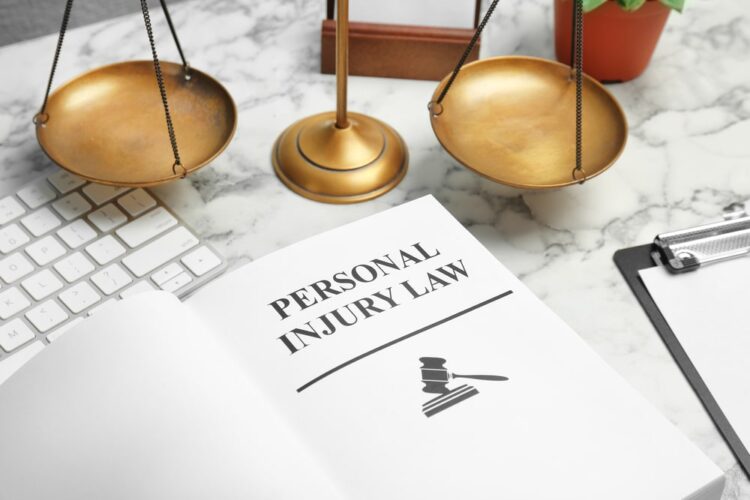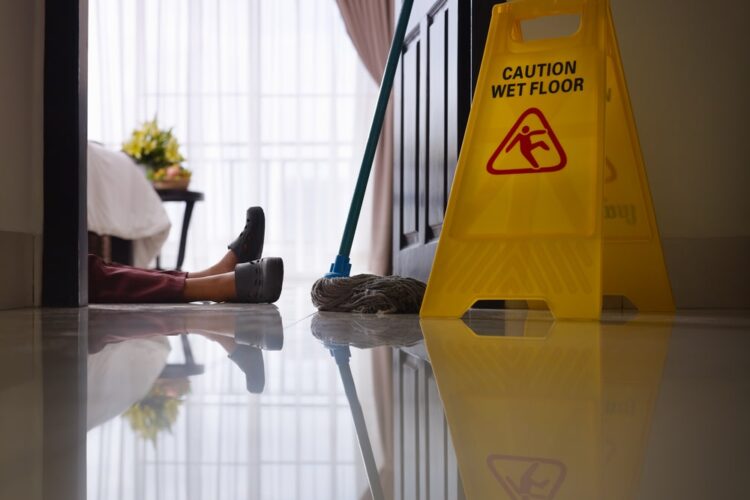January 27, 2024
Breaking Down The Legal Divorce Process Step By Step
Going through a divorce can be a challenging and emotional journey. It’s a process that not only signifies the end of a marriage but also involves navigating through a series of legal steps. Understanding these steps can make the journey less daunting and more manageable. In this comprehensive guide, we’ll walk you through the divorce process, ensuring you’re well-informed and prepared at every stage.
Understanding The Grounds For Divorce
Before initiating the divorce process, it’s crucial to understand the grounds on which you can file for divorce. These grounds vary depending on your jurisdiction but generally include both fault-based and no-fault options. No-fault divorce, which doesn’t require proving wrongdoing by either spouse, is now recognized in all states and is often cited as ‘irreconcilable differences’ or ‘irretrievable breakdown
Filing The Divorce Petition
The first official step in the divorce process is filing a divorce petition. This legal document, also known as a complaint or summons, is filed by one spouse (the petitioner) and served to the other spouse. This document outlines the basic information about the marriage, including the grounds for divorce and any initial requests for property division, child custody, alimony, or child support.
Responding To The Petition
After the divorce petition is filed and served, the other spouse (the respondent) has a set period to respond. This response can agree with or dispute the claims made in the petition. If the respondent fails to respond within the given timeframe, the court may grant a default judgment in favor of the petitioner.
Negotiating Settlement Agreements
Most divorce cases involve negotiations between the spouses to reach a settlement agreement. This agreement covers various aspects of the divorce, such as property division, child custody, child support, and alimony. Couples can negotiate directly, through their attorneys, or through alternative dispute resolution methods like mediation. Reaching an amicable settlement can save time, reduce costs, and minimize emotional stress.
Discovery Process
If spouses cannot reach an agreement, the divorce will proceed to the discovery phase. During discovery, both parties exchange information and documents related to the marriage’s assets, debts, income, and expenses. This process ensures that both parties have full knowledge of the marital estate, aiding in fair division.
Trial And Final Judgment
In cases where settlement is not possible, the divorce will go to trial. During the trial, both parties present their arguments, evidence, and witness testimonies before a judge. The judge then makes the final decisions on all contested issues. Trials can be lengthy, expensive, and emotionally taxing, making them the last resort for many couples.
Finalizing The Divorce
Once all issues are resolved, either through settlement or trial, the court issues a final divorce decree. This legal document officially ends the marriage and outlines the terms of the divorce, including property division, custody arrangements, and any support obligations. It’s essential to comply with all the terms outlined in the decree to avoid legal complications.
Moving Forward Post-Divorce
After the divorce is finalized, both parties need to start rebuilding their lives. This might involve adjusting to new living arrangements, adhering to custody schedules, or managing financial changes. It’s also a time for personal growth and healing.
Navigating the divorce process can be complex and emotionally taxing. However, understanding each step can make it more manageable. If you’re considering divorce, consulting with a qualified simple divorce lawyer can provide you with the necessary guidance and support. Every divorce is unique, and professional legal advice from an experienced attorney like those at Flat Fee Divorce Solutions is crucial in ensuring your rights and interests are protected.
January 26, 2024
The Educational Role Of Accident Lawyers
In the intricate world of legal proceedings, accident lawyers play a multifaceted role. Beyond their well-known duties of representing clients in court and negotiating settlements, these legal professionals also assume a crucial educational role. This aspect of their work, often overlooked, is vital in shaping informed, aware, and legally savvy individuals and communities.
Bridging The Knowledge Gap
Post-accident scenarios often leave individuals bewildered, unsure of their legal rights and the steps they need to take. Here, the educational guidance provided by lawyers becomes indispensable. For instance, attorneys are known for their commitment to informing their clients about the intricacies of car accident law. They help bridge the knowledge gap, empowering clients to make informed decisions regarding their cases.
Guiding Through Legal Labyrinths
The legal system can be a labyrinth for those unfamiliar with its workings. Accident lawyers serve as guides, helping clients understand complex legal terminologies and procedures. They elucidate the nuances of laws pertinent to car accidents, insurance claims, and compensation. This demystification of legal processes helps clients grasp the implications of their cases and the legal avenues available to them.
Advocating For Informed Decision-Making
One of the hallmarks of a competent car accident lawyer is the ability to facilitate informed decision-making. This involves not just presenting options to clients but also educating them about the potential outcomes of each choice. By doing so, lawyers ensure that clients are active participants in their legal journey, rather than mere bystanders.
Contributing To Public Awareness
The educational role extends beyond their offices and courtrooms. They often engage in public speaking, write informative articles, and participate in community programs to raise awareness about road safety, legal rights post-accidents, and the importance of adhering to traffic laws. This outreach is pivotal in fostering a more legally aware and safer community.
Empowering Through Self-Advocacy
By educating their clients, accident lawyers also instill a sense of self-advocacy. This empowerment is crucial, especially in dealing with insurance companies and other parties involved in the accident. A well-informed client can effectively articulate their needs and rights, making them a formidable presence in any negotiation or legal proceeding.
The Ripple Effect Of Legal Education
The educational efforts of accident lawyers have a ripple effect. Clients who are well-versed in their legal rights and responsibilities are likely to share this knowledge with friends and family. This dissemination of information contributes to a more legally aware society, where individuals are better equipped to handle and prevent car accident-related legal issues.
The role of lawyers as educators is an indispensable aspect of their profession. Through their efforts in enlightening clients and the public, they contribute significantly to the creation of a more informed and legally conscious society. Their work goes beyond representing clients; it involves shaping a community where legal rights are known, understood, and upheld. This educational facet of their work, though less heralded, is equally impactful in the pursuit of justice and societal well-being.
Our friends at Cohen Injury Law Group, P.C detail some of the ways a lawyer may help you gain compensation below.
December 30, 2023
Steps To Take After A Car Accident
Experiencing a car accident can be disorienting and stressful. Knowing the right steps to take immediately after the incident can significantly impact the outcome of any potential legal or insurance issues. If you’ve been involved in an accident, it’s important to call first responders right away. But there are some important next steps you won’t want to miss:
1. Ensure Safety And Assess Injuries
The first and foremost step is to ensure the safety of everyone involved. If possible, move vehicles to a safe area and turn on hazard lights to alert other drivers. Assess if you or anyone else needs urgent medical attention. If there are any injuries, no matter how minor they seem, call emergency services immediately. Prioritizing safety and health is paramount.
2. Call The Police And File A Report
It’s essential to call the police to the scene of the accident, even for minor incidents. A police report provides an official record of the event, which can be crucial for insurance claims or legal purposes. Be factual when speaking to the police, but avoid admitting fault or making statements that could be used against you later.
3. Document The Accident And Gather Information
Documentation is key following a car accident. Take photos of the vehicles, any damages, the accident scene, and any injuries. Also, gather information from the other driver, including their name, contact information, insurance details, and vehicle information. If there are witnesses, collect their contact information as well. These details will be invaluable for insurance claims and potential legal proceedings.
4. Notify Your Insurance Company
Contact your insurance company as soon as possible to report the accident. Provide them with the information you have gathered and the police report number. Be honest and clear about the incident, but remember that you don’t have to accept any settlement offers immediately. It’s often beneficial to speak to a lawyer before making agreements with insurance companies.
5. Seek Legal Advice
Lastly, consult with your car accident lawyer, especially if the accident was serious, involved injuries, or if there’s a dispute about who is at fault. A lawyer can provide crucial guidance and support, helping you navigate the complexities of insurance claims and legal proceedings. Attorneys often explain that legal representation can make a significant difference in protecting your rights and ensuring a fair outcome.
Get In Touch With A Lawyer Today
Following these steps after a car accident can help protect your health, rights, and financial interests. Remember to stay calm, prioritize safety, document everything, report the accident to your insurance, and consider legal advice. If you find yourself in need of legal assistance or guidance, don’t hesitate to reach out to seasoned legal professionals you can trust. The right legal team from Strong Law can make all the difference in the aftermath of a car accident.
December 28, 2023
What To Do After A Car Accident
Experiencing a car accident can be a traumatic and disorienting experience. Knowing the right steps to take immediately after the event can greatly influence the outcome of any legal actions or insurance claims that follow. While each situation is unique, there are general guidelines that can help ensure your safety and protect your rights.
1. Ensure Safety First
The first and foremost priority is to ensure the safety of everyone involved. If possible, move vehicles out of traffic to a safe location. Turn on your hazard lights and set up warning triangles or flares if available. Check on all parties involved for injuries. If there are any serious injuries, do not attempt to move the injured unless there is an immediate danger, like a fire. Call 911 immediately to report the accident and request medical assistance if needed.
2. Gather Information
Once you’ve ensured everyone’s safety, it’s important to gather as much information as possible. Exchange names, contact information, insurance details, and vehicle information with the other driver. If there are witnesses, politely ask for their contact information as well. It’s also beneficial to take photos of the accident scene, including all vehicles involved, any visible injuries, and road conditions. These details can be crucial for insurance claims and potential legal proceedings.
3. Report The Accident
In many states, you’re required to report a car accident to the police, especially if it involves significant property damage, injuries, or fatalities. A police report can be invaluable as it provides an official record of the accident’s details. Be factual in your account of the incident and avoid admitting fault or blaming others.
4. Seek Medical Attention
Even if you feel fine, it’s wise to seek medical attention after a car accident. Some injuries, like whiplash, may not be immediately apparent. A thorough medical examination will ensure that any hidden injuries are identified and treated early. This step is also important for legal and insurance purposes, as it provides a record of any injuries sustained due to the accident.
5. Notify Your Insurance Company
Report the accident to your insurance company as soon as possible. Provide them with all the information you’ve gathered. Be honest and detailed with your account, but avoid admitting fault or speculating about the accident. Your insurance company will guide you through their claims process.
6. Consult A Legal Professional
After dealing with the immediate aftermath of a car accident, it’s advisable to consult a legal professional, especially if the accident resulted in significant property damage, injuries, or if the fault is contested. Attorneys can attest to the complexities of car accident cases. Your qualified car accident lawyer can help protect your rights, guide you through the legal process, and ensure that you receive fair compensation for any damages or injuries.
7. Stay Calm And Collected
Throughout this process, it’s important to stay calm and collected. The aftermath of a car accident can be overwhelming, but taking these steps can help ensure your safety, protect your rights, and facilitate a smoother recovery process.
By following these guidelines, you can navigate the aftermath of a car accident more effectively. Remember, your safety and well-being are paramount. With the right approach and professional guidance, you can handle this challenging situation with confidence and clarity.
December 28, 2023
Navigating The Legal Landscape After A Pedestrian Accident
In the hustle and bustle of city life, pedestrian accidents are an unfortunate reality. Whether you’re crossing the street, walking along a sidewalk, or moving through a parking lot, the risk of being involved in an accident is always present. If you find yourself in such a situation, understanding your legal rights and the process of seeking compensation is crucial.
Understanding The Basics Of Pedestrian Accidents
A pedestrian accident occurs when a person walking, running, jogging, or otherwise traveling on foot is struck by a vehicle. These accidents can result in a range of injuries, from minor scrapes and bruises to more serious conditions such as broken bones, head injuries, or even fatalities. The impact of these accidents extends beyond physical harm, often leading to emotional and financial distress.
Determining Fault And Liability
One of the first steps in the aftermath of a pedestrian accident is determining fault and liability. In many cases, the driver of the vehicle is found to be at fault due to reasons such as speeding, distracted driving, or failure to yield the right of way. However, circumstances vary, and sometimes the pedestrian might be partially or entirely at fault. This determination is crucial as it impacts the ability to seek compensation and the amount that may be awarded.
The Role Of Comparative Negligence
Many states operate under a comparative negligence system, which means that if the pedestrian is found to be partially at fault, their compensation may be reduced by their percentage of fault. For example, if a pedestrian is found to be 20% at fault for jaywalking, their compensation might be reduced by that amount.
Seeking Legal Assistance
Navigating the complexities of pedestrian accident claims can be challenging, especially when dealing with insurance companies and legal proceedings. This is where the expertise of a personal injury lawyer becomes invaluable. A skilled personal injury lawyer can help evaluate the case, gather necessary evidence, and negotiate with insurance companies to ensure fair compensation.
What To Expect In A Compensation Claim
Compensation in pedestrian accident cases may cover various damages, including medical expenses, lost wages, pain and suffering, and more. The exact nature and amount of compensation depend on the specifics of the case, such as the severity of the injuries and the degree of fault.
Steps To Take Following An Accident
If you’re involved in a pedestrian accident, there are several steps you should take:
– Seek medical attention immediately, even if the injuries seem minor.
– Report the accident to the police.
– Gather information from the scene, including contact details of witnesses and photos of the location.
– Avoid discussing fault at the scene and with insurance companies.
– Contact a personal injury lawyer to discuss your case and explore your legal options.
The Importance Of Timely Action
It’s important to act swiftly following a pedestrian accident. Each state has a statute of limitations that dictates the time frame within which you can file a claim. Missing this deadline can result in the loss of the right to seek compensation.
Pedestrian accidents are traumatic experiences that can leave lasting physical, emotional, and financial impacts. Understanding your legal rights and the process for seeking compensation is crucial. With the guidance of a knowledgeable personal injury lawyer like those at Jeff Murphy Law, you can navigate this complex process and seek the compensation you deserve. Remember, your safety and well-being are paramount, and legal support is available to help you through this challenging time.
December 27, 2023
How Social Media Impacts Claims
Will My Facebook Posts Hurt My Accident Claim?
The impact of your Facebook posts on your accident claim can depend on the content of the posts and how they may be interpreted in the context of your claim. Insurance companies and opposing parties in a legal dispute often investigate social media profiles, including Facebook, to gather information that may be relevant to the case. It is important to consider several things.
Inconsistencies
If your Facebook posts contain information or statements that contradict your injury claims or suggest activities inconsistent with the injuries you’ve reported, they could potentially be used against you. For example, if you claim to have suffered severe physical injuries in a car accident but post pictures or status updates engaging in physically demanding activities, it may raise questions about the extent of your injuries.
Privacy Settings
Adjusting your privacy settings on social media platforms can limit the visibility of your posts to the public. However, even with privacy settings, it’s essential to be cautious about what you share with friends, as information may still be shared or discovered during the legal process.
Use Of Content As Evidence
Content from social media, including Facebook, may be used as evidence in court. Attorneys may use posts, photos, or comments to build a case for or against you.
Caution In Posting
While your claim is ongoing, exercise caution in what you post on social media. Avoid sharing details about your case, discussions with attorneys, or information that could be misinterpreted or taken out of context.
Consult With Your Attorney
If you have concerns about how your social media activity might affect your accident claim, it’s advisable to discuss these concerns with your attorney. A lawyer, like a truck accident lawyer, can provide guidance on what is appropriate to share and offer advice on how to protect your interests.
Updating Your Loved Ones Privately
When updating your family about a legal claim without resorting to social media, consider more personal and confidential communication methods. Reach out directly through phone calls, texts, or emails to keep them informed. Share important details, progress, and any significant developments in a discreet manner. Emphasize the need for discretion, as discussing sensitive legal matters publicly on social media can have unintended consequences, potentially compromising the case. By maintaining privacy and open lines of communication, you ensure your family remains well-informed and can offer support without jeopardizing the integrity of your legal claim.
Get Help For Your Claim
Ultimately, it’s crucial to be mindful of your online presence during the pendency of a legal claim. As attorneys, like those at Kiefer & Kiefer know, insurance companies and opposing parties may scrutinize social media content to gather evidence, so being cautious about what you share can help protect your case. If in doubt, consult with your attorney to ensure that your social media activity does not inadvertently harm your accident claim. If you were injured in an accident and are wondering what legal steps you should take, don’t hesitate to reach out to your local law office for help.
December 27, 2023
The Risks Of Distracted Driving
Understanding The Risks Of Distracted Driving
In today’s fast-paced world, where multitasking has become a norm, the dangers of distracted driving are more prevalent than ever. Distracted driving, a term that encompasses a range of activities from using a mobile phone to eating while driving, has become a leading cause of road accidents. The consequences of such behavior are not only physical and emotional but also legal, particularly when it comes to car accident lawsuits.
Legal Implications Of Distracted Driving
There can be severe legal ramifications when an accident occurs as a result of distracted driving. In these cases, determining liability becomes a complex process. Attorneys can attest to the intricacies involved in proving fault in distracted driving cases. The key challenge lies in establishing that the driver’s lack of attention directly led to the accident. Often, proving the case was a result of distracted driving will involve gathering key evidence such as surveillance footage, police reports, phone records, and eyewitness testimonies.
Distracted Driving And Negligence
In legal terms, distracted driving is often categorized as negligence. A driver, when behind the wheel, has a duty of care towards other road users. Engaging in distractions is a breach of this duty. When this breach leads to an accident, the distracted driver can be held liable for damages. This principle forms the basis of many car accident lawsuits, where victims seek compensation for their injuries, damages, and losses.
The Role Of Evidence In Distracted Driving Cases
Gathering evidence is crucial in proving distracted driving. Legal teams work diligently to compile evidence that can demonstrate the driver’s negligence. This includes obtaining cell phone records to prove phone usage during the time of the accident, analyzing traffic camera footage, and collecting statements from witnesses. The stronger the evidence, the higher the likelihood of holding the distracted driver accountable.
Comparative Negligence And Its Impact
In some cases, the concept of comparative negligence comes into play. This means that if the victim of the accident is found to have contributed to the crash in some way, their compensation may be reduced proportionally. For example, if a victim was not wearing a seatbelt, this could be considered a contributing factor. Legal professionals navigate these complexities to ensure fair outcomes for their clients.
The Role Of An Attorney
In areas with diverse populations, the role of a Spanish car accident attorney becomes critical. Language barriers should not hinder access to justice. These attorneys provide vital legal assistance to Spanish-speaking communities, ensuring they receive the representation and support they need in car accident lawsuits involving distracted driving.
Preventative Measures And Awareness
Preventing distracted driving is not just a matter of legal concern but also of public safety. Raising awareness about the dangers of distracted driving is essential. Educational campaigns, stricter laws, and technological solutions like hands-free devices are all part of a broader strategy to reduce these types of accidents.
Final Thoughts On Distracted Driving And Legal Ramifications
Distracted driving is a serious issue with far-reaching consequences. It not only endangers lives but also brings about complex legal battles. Understanding the legal implications, the importance of evidence, and the role of skilled attorneys is crucial for anyone involved in a car accident lawsuit. As we become more reliant on technology, the responsibility to drive attentively and safety is paramount. Remember, when it comes to road safety, every moment of attention counts.
November 27, 2023
Causes Of Urban Slip & Fall Injuries
Slip and fall accidents are among the most common causes of injury in urban environments. Recognizing and understanding these common causes are essential in preventing accidents and knowing when to seek legal help.
Wet And Slippery Surfaces
One of the leading causes of slip and fall accidents is wet or slippery surfaces. This could be due to spilled liquids in grocery stores, freshly mopped floors in office buildings, or icy sidewalks during winter. Establishments and property owners have a duty to ensure that such hazards are promptly addressed and clearly marked to prevent accidents.
Uneven Or Damaged Walking Surfaces
Uneven sidewalks, potholes, loose floorboards, or torn carpeting can pose significant risks, especially in busy areas. Property owners are responsible for regular maintenance to ensure that walking surfaces are safe for public use.
Poor Lighting
Inadequate lighting can contribute to slip and fall accidents by obscuring visibility. This is particularly dangerous in areas with uneven surfaces, steps, or other potential hazards. Proper lighting is crucial in stairwells, parking lots, and walkways.
Cluttered Or Obstructed Walkways
Obstacles in walkways, whether temporary like construction materials or permanent like improperly placed furniture, can lead to trips and falls. It’s essential for businesses and property owners to keep paths clear and unobstructed.
Weather-Related Hazards
In cities like New York, weather conditions can quickly create hazardous situations. Snow, ice, and wet leaves are common culprits in outdoor slip and fall accidents. Property owners need to address these conditions promptly, such as by salting icy surfaces or clearing snow.
Lack Of Safety Measures
In some cases, the absence of necessary safety measures, like handrails in staircases or non-slip mats in slippery areas, can lead to accidents. Ensuring these safety features are in place and maintained is a key responsibility of property owners.
Inadequate Warnings
Failure to post warning signs in areas where there’s ongoing construction, wet floors, or other temporary hazards can lead to preventable accidents. Clear and visible signage is an important precautionary measure.
Footwear
While not directly related to property owner negligence, inappropriate footwear can increase the risk of slipping and falling, especially on slick surfaces. Wearing shoes with good traction can help reduce this risk.
Legal Assistance For Slip And Fall Accidents
Understanding the common causes of slip and fall injuries is just the first step. If you’ve been injured in such an accident due to someone else’s negligence, seeking legal assistance is crucial. The expertise of a slip and fall lawyer can help you navigate the complexities of your case and pursue the compensation you deserve.
Slip and fall accidents can happen to anyone and are often due to preventable causes. Recognizing these hazards and taking appropriate precautions are essential. If you find yourself a victim of such an accident, know that legal resources are available to assist you in addressing any negligence and obtaining rightful compensation.
November 22, 2023
Reaching A Satisfying Settlement Of Your Marital Estate During Negotiations
In the classic divorce movie, War of the Roses, one of the attorneys advises his client to settle, stating, “There is no winning. Only degrees of losing.” While this can be true, reframing your thought process and approach to reaching a settlement in your case to reach a mutually satisfactory settlement will save you time, money and stress. The word satisficing is a portmanteau of sacrificing and satisfying. So, how do you reach a satisfying settlement in your divorce? Our friends at Flat Fee Divorce Solutions answer these common questions below.
- Put aside the winner-take-all mentality, as well as a desire to hurt your soon-to-be-ex.
It is important to remember that divorce is not a competition. There is no winner or loser. It is simply the end of a marriage. It is important to focus on what is best for you, and to avoid trying to hurt your soon-to-be-ex. This may be difficult, but it is important to remember that you will be co-parenting with this person for many years to come. It is better to have a good relationship with your ex-spouse than to have a bad one. Additionally, if you purposefully act to hurt your soon-to-be-ex, there is a higher likelihood they will respond with emotion and not logic, trying to strike back at you.
- Figure out what is your best resolution and your worst-case outcome. An experienced divorce attorney can help you outline your worst-case, along with the costs.
It is important to be realistic about what you can expect to achieve in your divorce. What is the best outcome you can hope for? What is the worst outcome you can imagine? Once you have a good understanding of your best and worst-case outcomes, you can start to think about what you are willing to sacrifice in order to reach a settlement.
- Reflect on how your worst-case outcome will affect your life.
It is important to take some time to reflect on how your worst-case outcome would affect your life. What would it be like to lose your house? To have to pay a lot of alimony? To have limited custody of your children? Once you have a good understanding of the impact of your worst-case outcome, you may be more willing to compromise in order to reach a settlement.
- Now that you understand how the worst-case outcome will affect you, determine your must-haves, your like-to-haves and the terms that you could care less about. Make a list.
- It is also important to think about what your soon-to-be-ex wants. What is their best-case outcome? What terms do they need to have in order to settle? What do they want to have but are not willing to fight for? Once you have a good understanding of your soon-to-be-ex’s wants and needs, you can start to think about how to compromise
- With each of the must-haves, consider what you will sacrifice to get that included in your divorce. Once you know what your must-haves are, it is time to start thinking about what you are willing to sacrifice in order to get them. If you want the house, but your soon-to-be-ex wants the newer car, would you be willing to give up the car? It is important to be flexible and willing to compromise in order to reach a settlement.
- With each of your soon-to-be-ex’s must haves, figure out what they are likely to sacrifice to reach them. Then decide if you think you can accept those.
- Once you have a good idea of what you’re willing to give up to reach a settlement and what your soon-to-be-ex is willing to also give up, you should have a list of negotiable items.
- Review your list with your attorney. As you do, try to dispassionately advise yourself what you might suggest your best friend or family member do.
As you work on this, here are a few additional tips:
- Be willing to compromise. Neither of you is going to get everything you want, so be prepared to give and take.
- Be realistic. Don’t ask for something that you know your soon-to-be-ex is not going to agree to.
- Be prepared to walk away. If you can’t reach a satisfactory settlement, it’s better to walk away than to agree to something that you’re not happy with.
- Be honest with yourself and your attorney about your priorities. What is most important to you in the divorce? Once you know what your priorities are, you can focus on those areas and be more flexible on other issues.
- Be patient. Negotiations can take time. Don’t expect to reach a settlement overnight.
- Be respectful of your soon-to-be-ex. Even if you’re angry at them, it’s important to treat them with respect during the negotiation process. This will make it more likely that you’ll be able to reach a settlement.
Remember, the goal is to reach a satisfying settlement, not a perfect one. If you can both walk away from the divorce feeling like you got a fair deal, then you’ve been successful.
November 9, 2023
Questions About The Role Of A Family Lawyer
When facing family-related legal issues, the aid of our Colorado family lawyer is invaluable. Many people are unaware of the wide range of cases that a family lawyer covers. They have experience in knowledge in cases ranging from divorce to child custody and adoption.
Listed below are five common questions and answers that explain the role of a family lawyer further. If you are in need of a family lawyer, contact Zweig Law, PC today to schedule an appointment and discover how we can help you.
What Legal Matters Can A Family Lawyer Assist With?
Family law is a broad practice area that covers all legal matters related to familial relationships. A family lawyer can handle a wide array of cases including divorce proceedings, child custody and support arrangements, division of marital assets, alimony, paternity disputes, and adoption processes. Our lawyers are skilled in navigating the complexities of family law to protect your interests and those of your loved ones.
What Does A Family Lawyer Assist With The Divorce Process?
Divorce is a legal termination of a marriage and can be either uncontested or contested. The process involves several legal steps, starting with the filing of a petition, serving the petition to the other spouse, and negotiations regarding asset division, custody, and support. An experienced family lawyer will diligently represent your interests throughout the process, ensuring that you are informed and your rights are upheld in accordance with Colorado law.
Can A Family Lawyer Help With Child Custody And Support Issues?
A family lawyer absolutely can help with child custody and support cases. Child custody and support are central concerns in many family law cases. Determining the child’s best interest is paramount, and this involves negotiating parenting time, decision-making responsibilities, and financial support. A family lawyer is essential in these cases to ensure that the child’s needs are met while also safeguarding parental rights.
What Is The Role Of A Family Lawyer In The Case Of Asset Division?
During a divorce, the division of assets can become contentious. A family lawyer’s role is to help equitably divide marital property, including real estate, retirement accounts, and personal property, considering factors like the length of the marriage and each party’s financial contribution. Our team works to reach a fair settlement or, if necessary, to advocate for your interests in court.
Can Family Lawyers Assist With Adoption And Paternity Cases?
Yes, family lawyers play a crucial role in adoptions and paternity cases by ensuring that the legal requirements are met and the process runs smoothly. This can include filing petitions, representing clients in hearings, and advising on the legal implications of various forms of adoption or establishing legal paternity.
The Importance Of Representation
An experienced family lawyer understands that family law matters are deeply personal and can be emotionally charged. Our goal is to offer compassionate, comprehensive legal support. If you’re in need of a family lawyer who will advocate for your family’s best interests with dedication and professional assistance, contact Zweig Law, PC today to schedule an appointment.










